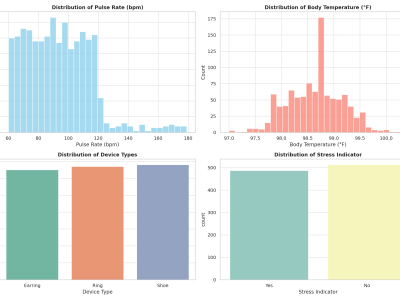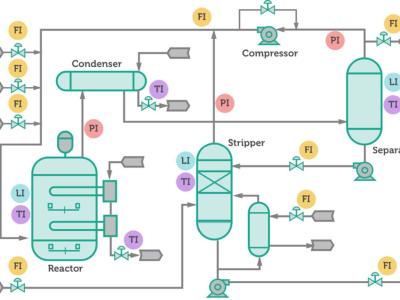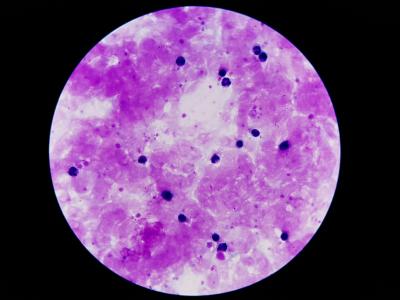Comprehensive Patient-Health Monitoring Dataset

- Citation Author(s):
-
Karthick Raghunath K M
- Submitted by:
- K M Karthick Raghunath
- Last updated:
- DOI:
- 10.21227/2t3q-6g13
- Data Format:
 3804 views
3804 views
- Categories:
- Keywords:
Abstract
The Comprehensive Patient-Health Monitoring Dataset is an extensive collection of health-related data gathered from remote monitoring systems between June 4, 2023, and October 4, 2023. This dataset comprises 10,000 samples, each meticulously recorded at ten-minute intervals, capturing a diverse array of vital signs and health metrics crucial for patient care and medical research. Key attributes included in the dataset are timestamps, heart rate (bpm), blood pressure (systolic/diastolic mmHg), respiratory rate (breaths per minute), body temperature (°C), blood oxygen level (SpO2 %), and glucose level (mg/dL). These parameters are fundamental indicators of an individual’s health status, providing a comprehensive view of their physiological state over time.
The dataset is structured to facilitate ease of use for various analytical and research purposes. Each record is timestamped, ensuring accurate chronological tracking of patient health metrics. Heart rate measurements are presented in beats per minute (bpm), blood pressure readings include both systolic and diastolic values (mmHg), respiratory rate is captured in breaths per minute, body temperature is recorded in degrees Celsius, blood oxygen levels are expressed as a percentage of SpO2, and glucose levels are noted in mg/dL. The data format ensures compatibility with a wide range of analytical tools and statistical software, making it accessible for researchers across different disciplines.
This dataset holds significant potential for a wide array of research applications in the healthcare field. Its extensive temporal coverage and detailed vital sign measurements make it a valuable resource for studying trends and patterns in patient health over time. Researchers can leverage this dataset to develop and validate predictive models for early disease detection, patient deterioration prediction, and personalized health interventions. Moreover, the dataset can support the evaluation and improvement of remote monitoring technologies and telemedicine practices, contributing to the enhancement of patient care in non-clinical settings.
Instructions:
The generalizability of the dataset is underscored by its diverse sampling frequency and comprehensive inclusion of essential health metrics. It provides a robust foundation for cross-sectional and longitudinal studies, enabling researchers to extrapolate findings to broader patient populations. The dataset’s applicability extends to various domains, including epidemiology, public health, machine learning, and artificial intelligence, fostering interdisciplinary research collaborations. By offering a rich source of empirical data, the Comprehensive Patient-Health Monitoring Dataset is poised to drive innovations in healthcare delivery and improve health outcomes on a global scale.












u
--